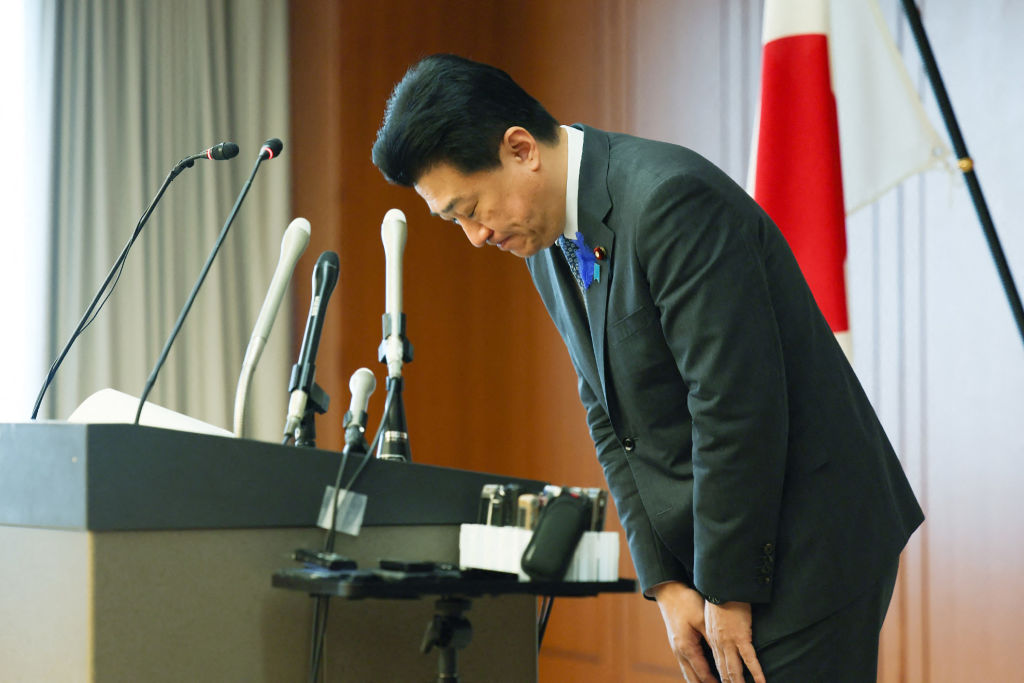Japan replaced the head of its navy and punished more than 200 defense officials after a string of scandals that include mishandling of classified information and overclaiming on pay.
The array of misconduct is some of most widespread revealed in the Japanese defense establishment in recent years and casts a shadow over Tokyo’s efforts to bolster its military to deal with rising challenges from China and North Korea.
[time-brightcove not-tgx=”true”]
“These problems have betrayed the public trust and are unacceptable,” Defense Minister Minoru Kihara said Friday in Tokyo, adding he would return one month of his salary to acknowledge his own responsibility. He pledged steps to prevent a recurrence.
The scandals included classified information on warship movements being made accessible to individuals without security clearance, as well as dozens of navy divers claiming hazard pay for duties they hadn’t actually performed, the ministry said. There were also cases of ministry officials verbally harassing subordinates, the ministry said.
Around 220 officials are being punished with penalties ranging from dismissals to formal reprimands, according to the ministry.
Japan’s navy, known as the Maritime Self-Defense Force, is at the center of many of the misconduct charges. Admiral Ryo Sakai, the MSDF chief of staff, said in a statement that he would step down on July 19 to take responsibility.
“Taking this opportunity, please accept my deepest apology for the disappointment caused,” he said in the statement posted to a ministry webpage.
The revelations may increase public reluctance to foot the bill for a rapid build-up in defense spending.
Japan is in the middle of lifting defense outlays to around 2% of gross domestic product from around 1% over five years through 2028. The government has put off a decision about how it will fund much of the additional spending for weapons like missiles and fighter jets, and polling shows public opposition to tax hikes to pay for extra defense spending.
In its annual defense white paper, released Friday, Japan said it had secured 42% of the ¥43.5 trillion ($273 billion) total needed to fund the planned defense build-up.
Prime Minister Fumio Kishida, speaking after attending a NATO summit meeting in Washington, said he had instructed Kihara to root out problems and strengthen leadership to recover public trust.
“Looking back on the NATO meeting, it’s clear that we are facing an extremely serious security environment. With that in mind, Japan can’t afford to have any lapses in our own security,” Kishida said.
The defense scandals add another headache for Kishida’s own prospects of staying in power. His support ratings are at historic lows over his handling of a separate political funding scandal and as households are battered by rising prices.

